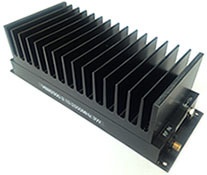Speaker
Emeritus Professor of Microwave Engineering
MA, MSc, PhD, FHEA, FIET
Former Head of Department of Electronic, Electrical and Systems Engineering, School of Engineering, University of Birmingham
Professor Peter Gardner joined the School of Electronic and Electrical Engineering at Birmingham University as a lecturer in 1994. His research interests are in active and passive microwave and mm-wave component development, including active antennas, mm-wave antennas, wireless transceivers, low noise amplifiers and linearisation of microwave transmitters.
He has designed and delivered many taught programme modules including undergraduate modules in IT and Communication Skills, Communications Systems, Algorithms and Data Structures, and postgraduate modules on RF and Microwave Circuit Design and on Satellite, Mobile and Optical Communications.
After graduating in Physics with first class honours from the University of Oxford in 1980, he gained eight years of industrial experience in research and development of active microwave components for Ferranti International, Poynton, Cheshire. He then returned to academic research, joining the Dept. of Electrical Engineering and Electronics at UMIST, Manchester, as a Research Associate, in the course of which he obtained an M.Sc. in 1990 and PhD in 1992. He has over 240 publications on microwave and mm-wave component design and radar research. He has carried out consultancy work for a number of radar and communications companies and is currently a member of the Technical Committee of antenna company Novocomms.
Speaker
Jue Wang received PhD degree in Electronics & Electrical Engineering from the University of Glasgow in 2014 and currently working at Ultrafast Group, School of Engineering, University of Glasgow as senior researcher.
He leads research activities in many projects such as EPSRC and European Horizon 2020. He developed his expertise in Microwave/mm-wave circuit especially negative resistance oscillator design, fabrication, and characterization with over 10 years researching/working experience.
He has over 30 publications on high performance mm-wave/THz oscillator design and applications.
His research interest also includes mm-Wave applications in such as next generation high-speed wireless communication systems, imaging systems, etc.
Speaker
Clive Barnett is currently working as a Solution Engineer with Keysight Technologies and he has been with HP, Agilent and now Keysight for 23 years, before that for Com Dev Europe for 4 years.
In that time he’s worked as an R&D Engineer designing components for Satellite payloads, as an Application Engineer specialising in VNA measurements in the UK for HP, before becoming a Custom Systems Engineer working in the 8510 group for HP in California. He then spent 2 years working for HP in Queensferry, in Marketing, before HP split into Agilent.
Since 2007 Clive has been working supporting Component Test solutions for Agilent/Keysight which includes VNA solutions, Phase Noise, Antennas and Lightwave Component Analysers.
Speaker
Professor of Wireless Engineering
BSc (Wuhan), MSc (Nanjing), DPhil (Oxford), FIEEE, FIET, CEng
Department of Electrical Engineering & Electronics
University of Liverpool
Prof Yi Huang received BSc in Physics (Wuhan, China), MSc (Eng) in Microwave Engineering (Nanjing, China), and DPhil in Communications from the University of Oxford, UK in 1994. He has been conducting research in the areas of antennas, radio propagation, applied electromagnetics, radar, wireless communications, and energy harvesting since 1987. His experience includes 3 years with NRIET (China) as a Radar Engineer and various periods with the Universities of Birmingham, Oxford, and Essex as a member of research staff. He worked as a Research Fellow at British Telecom Labs in 1994 and then joined the Department of Electrical Engineering & Electronics, the University of Liverpool as a Lecturer in 1995, where he is now a Chair in Wireless Engineering, Deputy Head of Department, and Head of High-Frequency Engineering Research Group.
Yi Huang has published over 500 refereed papers in leading international journals and conference proceedings and authored books on Antennas: From Theory to Practice (John Wiley, 2008, and 2021) and Reverberation Chambers (Wiley 2016, and 2019). He has received over 10 awards (e.g. the IET Premium Award 2022 for Best Paper, EuCAP2023 Best Antenna Paper, the IET Innovation Award 2018, and BAE Systems Chairman's Award 2017) and many research grants from research councils, government agencies, charities, the EU, and industry, acted as a consultant to various companies, and served on a number of national and international technical committees (such as the IET, EPSRC, European ACE, COST-IC0603, and COST-IC1102, and EurAAP) and been an Editor, Associate Editor or Guest Editor of four of international journals (including IEEE AWPL 2016-2022). He has been a keynote/invited speaker and organiser of many international conferences and workshops (e.g. EuCAP2018, IEEE iWAT, WiCom, and LAPC). He is at present the Editor-in-Chief of Wireless Engineering and Technology, Associate Editor of IEEE Trans on Antennas and Propagation, a College member of EPSRC, the UK/Ireland Delegate to EurAAP (2016-2020, 2022-2024), a Fellow of IEEE (FIEEE), a member of IEEE AP-S New Technology Directions Committee, a Distinguished Lecturer of IEEE AP-S (2022-date), and Senior Fellow of Higher Education Academy (SFHEA).
 This intensive, five-day practical course provides acceleration through the RF design learning curve by presenting a comprehensive introduction to RF and microwave design theory, techniques and measurements.
This intensive, five-day practical course provides acceleration through the RF design learning curve by presenting a comprehensive introduction to RF and microwave design theory, techniques and measurements.